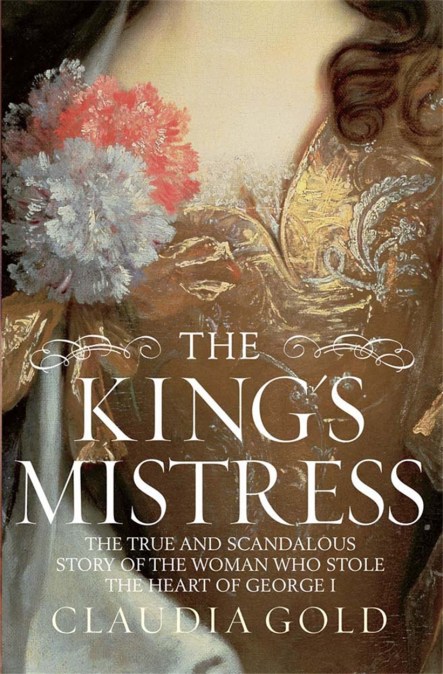As the mistress and possible secret wife of George I, Ehrengard Melusine von der Schulenburg, was England’s first Georgian queen in all but name.
Her nickname amongst the English, who loathed her and found her scrawny, was ‘the Maypole’. Others sources complained she was old: she was hideous; she had appalling dress sense and was bald; she was excessive in her greed; she had no love for George and would have ‘sold him to the highest bidder’; she was dim-witted; she was dull; she stood by passively as George pursued younger and more attractive mistresses; she condoned incest, willingly sharing George’s affections and his bed with his half-sister, Sophia Charlotte.
Yet this scandalous gossip only tells one kind of story. It doesn’t mention how Melusine charmed George away from his wife, the beautiful and tempestuous wife, Sophia Dorothea of Celle, and bound him to her until his death. Nor does it show how her gentle nature and good sense helped keep George’s notoriously dysfunctional family from tearing itself apart. The brutal English press, who pursued her mercilessly, gave Melusine no credit for her astonishing rise from minor courtier to the ranks of the most powerful women in Europe, or for her love of music that saw her mixing with everyone from George Frideric Handel to the flamboyant theatrical impresario John James Heidegger.
In The King’s Mistress Claudia Gold brings Melusine, and the many contradictions that make her such a fascinating character to vivid life.
Her nickname amongst the English, who loathed her and found her scrawny, was ‘the Maypole’. Others sources complained she was old: she was hideous; she had appalling dress sense and was bald; she was excessive in her greed; she had no love for George and would have ‘sold him to the highest bidder’; she was dim-witted; she was dull; she stood by passively as George pursued younger and more attractive mistresses; she condoned incest, willingly sharing George’s affections and his bed with his half-sister, Sophia Charlotte.
Yet this scandalous gossip only tells one kind of story. It doesn’t mention how Melusine charmed George away from his wife, the beautiful and tempestuous wife, Sophia Dorothea of Celle, and bound him to her until his death. Nor does it show how her gentle nature and good sense helped keep George’s notoriously dysfunctional family from tearing itself apart. The brutal English press, who pursued her mercilessly, gave Melusine no credit for her astonishing rise from minor courtier to the ranks of the most powerful women in Europe, or for her love of music that saw her mixing with everyone from George Frideric Handel to the flamboyant theatrical impresario John James Heidegger.
In The King’s Mistress Claudia Gold brings Melusine, and the many contradictions that make her such a fascinating character to vivid life.
Newsletter Signup
By clicking 'Sign Up,' I acknowledge that I have read and agree to Hachette Book Group's Privacy Policy and Terms of Use
Reviews
'Claudia Gold's opening chapters are hectic and brilliant, like the Keystone Cops with chandeliers, as she attempts to track these ever fluctuating liaisons and dignities' Daily Express.
'Gold has produced a vivid and enjoyable biography that highlights the sympathetic side of Melusine's character, while acknowledging the acquisitiveness and lack of scruple that made her so unpopular' Spectator.

